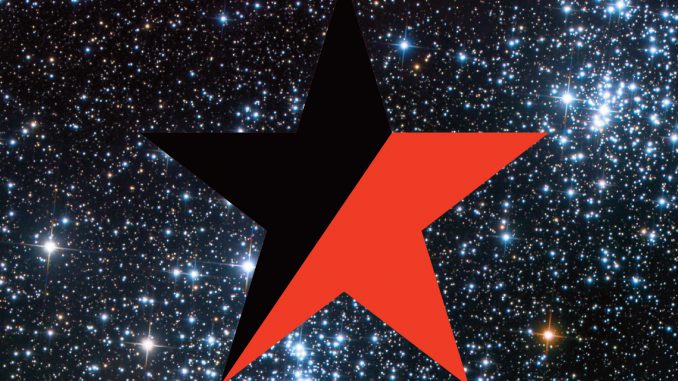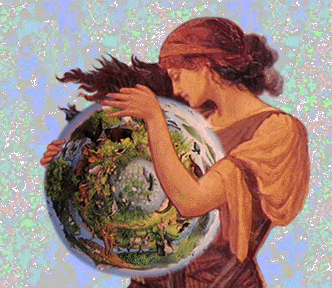
It’s now been five years since the publication of my first book, The Anarchist Revelation.
I have written a few more since then and have also used various articles, talks and interviews to explain my thinking. But I am still not sure that I have made myself completely clear, so this anniversary seems like a good time to try and put that right.
What is it that I am putting across in my writing? Why doesn’t it sound like what most other contemporary anarchists are saying? What political and philosophical position am I promoting, in a thousand-word nutshell?
The foundation of my personal philosophy is anarchism. That may seem obvious, but it’s worth spelling out. All the other elements that I am going to mention are contained within the context of my anarchism. While I certainly read non-anarchist authors, I only take on board their ideas if I find them compatible with my anarchist principles. There is no danger of my drifting away from anarchism, because my world view is fashioned from anarchism. The anarchist vision I present may not resemble other people’s personal versions of anarchism, but it remains anarchist.
These anarchist principles obviously include the rejection of all authority and control imposed from above, including the constructs of so-called law, so-called government, and so-called property, in favour of self-governing communities based on mutual aid. As an anarchist, I am necessarily internationalist and anti-racist, regarding every human being as of equal worth and with an equal right to share the earth and its fruits.
 Coupled with my anarchism is an opposition to industrial capitalism. I know that many anarchists broadly accept industrial society and envisage a future where industry and its infrastructure remain intact but under popular control. I don’t share that position and regard industrialism as a facet of capitalism and therefore something that is necessarily anathema to anarchists. I wouldn’t term myself a “primitivist”, but I certainly hope for an end to the nightmare of industrial society and for a future where people can live in harmony with the natural world, growing and producing according to the needs of the community rather than for the profits of an exploitative few.
Coupled with my anarchism is an opposition to industrial capitalism. I know that many anarchists broadly accept industrial society and envisage a future where industry and its infrastructure remain intact but under popular control. I don’t share that position and regard industrialism as a facet of capitalism and therefore something that is necessarily anathema to anarchists. I wouldn’t term myself a “primitivist”, but I certainly hope for an end to the nightmare of industrial society and for a future where people can live in harmony with the natural world, growing and producing according to the needs of the community rather than for the profits of an exploitative few.
Thirdly, and in conjunction with my opposition to industrial capitalism and the mass consumer society that it spawns, I advocate a future society based not on money, economic “growth” and technological “progress”, but on values. These values would be anarchist, of course – co-operation, equality and non-domination – but also, more broadly, involve the respect and appreciation of nature, beauty, quality, authenticity, simplicity, honesty, integrity and dignity.
Fourthly, I am seeking to piece together a philosophy founded on nature and on our belonging to nature. This seems to frighten some urban-minded anarchists, but was in fact very much what Kropotkin was working on, particularly in Ethics. By a philosophy of nature, I don’t just mean environmentalist politics, but an understanding of the human mind, and the human culture it has created, founded on the fact that we are one small part of a greater organic whole, usually called “nature”. Our innermost mental structures and tendencies reflect that belonging: it is the canvas on which our human culture is painted.

Fifthly, there is the metaphysical dimension. I have always been an atheist and have the instinctive aversion to the word “God” which is typical of anarchists. Instead, I follow Plotinus in regarding the entire universe as a living organism, as one indivisible entity. This is an extension of the concept of a living planet, Gaia. It is also an extension of the anarchist idea of a living, self-ruling, community, as opposed to a dead pseudo-community ruled over by a state. This idea of an organic universe, of which we are an instrinsic part, is deeply heretical, religiously and politically. It rejects the model of authority, of a separate God, and celebrates instead the magical and vibrant quality in everything: in every single person, animal, plant, river, stone, meteorite, galaxy. This is anarchist metaphysics! What could be more empowering, philosophically or politically, than realising that you are a temporary manifestation of a great organic whole, with all the freedom and responsibility this involves?
The sixth aspect of my philosophy is connected to the first five in a vertical, rather than horizontal, way. It is my awareness of the interconnections and correspondences between all the aspects I have outlined here. More than that, it is also the willingness to seek out connections and to understand their significance. It is a consciously holistic approach and, indeed, embraces holism as a political and philosophical value in itself.

The seventh facet is an awareness of all the ways in which the ideas and values I hold dear have been suppressed or sidelined in contemporary society. There is a historical angle to this awareness, and a cultural and political one. It applies to the various ideas separately and when taken together in various combinations. It also pertains to the links between them, which are often denied or overlooked, following the contemporary preference for classification, separation and fragmentation.
Element number eight of my philosophy perhaps goes without saying, bearing in mind the above – it is the intellectual desire to challenge and overcome the way important ideas and values have disappeared from our society. There is a difference between putting forward certain arguments which are rejected by society as a whole, and putting forward those same arguments together with an awareness and critique of the way they have been rejected. An intellectual suit of armour has been added. Analysing and countering the rejection becomes an intrinsic part of the political position because of the hostile intellectual environment.
The ninth element is a general belief in the need for action, for agency, for a dynamic dimension which takes us beyond passive reflection or analysis and allows us to engage with the world. It is movement, fluidity, risk, change, élan, resistance, revolt. This is already inherent in anarchism, of course, but it has to be expanded to take in all the other aspects as well, otherwise the overall philosophy becomes static.
Number ten is what I have been doing here. It is the act of being aware of all the above and consciously framing the whole thing as a political position.
Do you agree with me? Disagree? Have something to add? Please feel free to comment here or contact me via cudenec(at)riseup.net
Leave a Reply